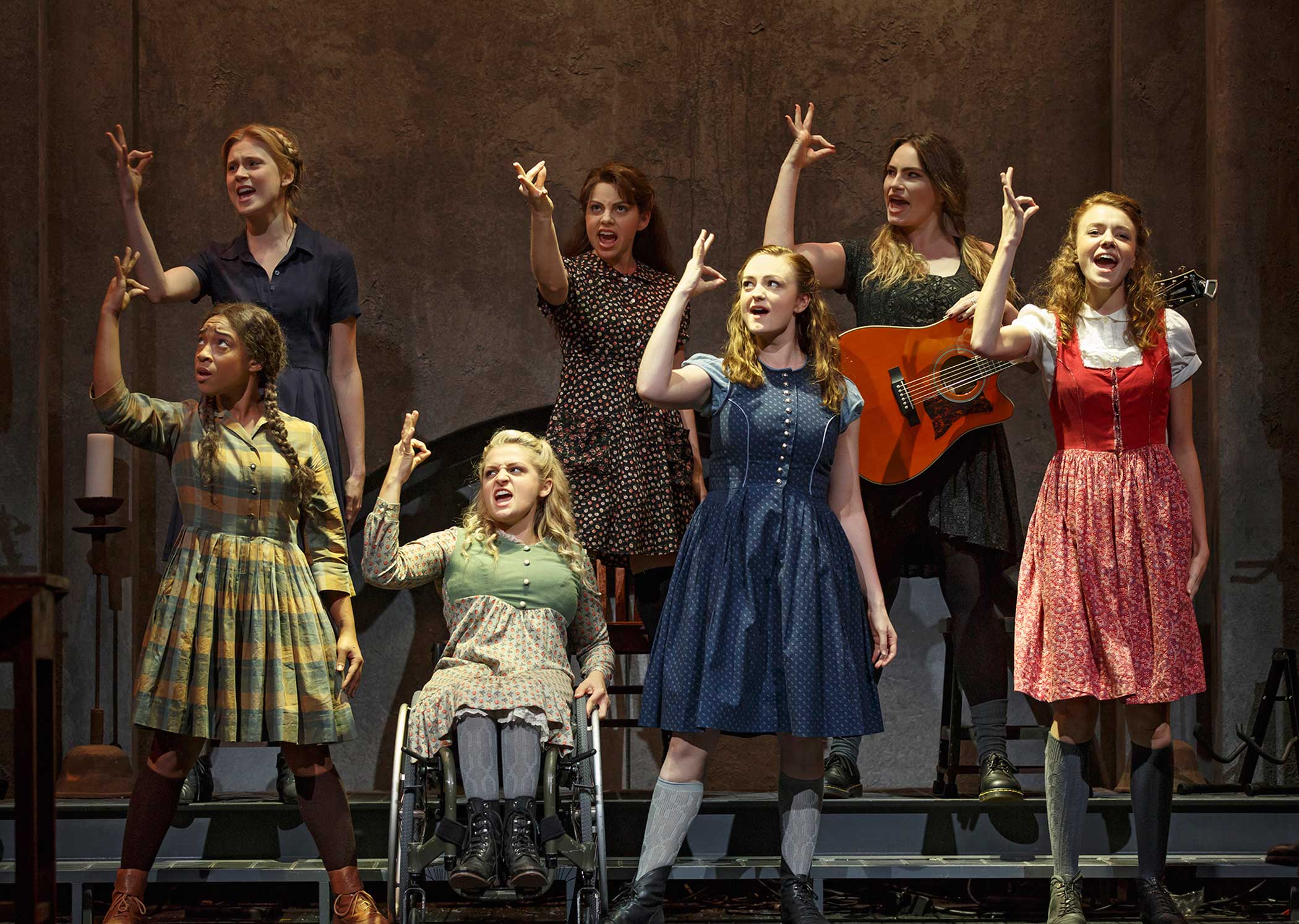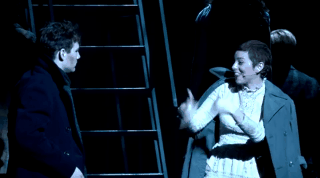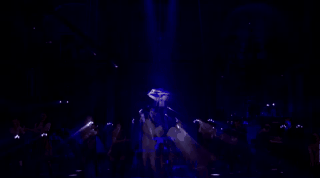
Theatergoers typically think of Broadway musicals in terms of what’s in the name: music. Take the sound away and you’re left with what, exactly?
Everything. At least that’s what Spring Awakening’s latest Broadway cast is proving. Deaf West Theater’s reimagining of the Tony Award-winning show is breaking boundaries by putting deaf actors and hearing actors on the same stage.
The original production of the show, with music by Duncan Sheik, and book and lyrics by Steven Sater, opened on Broadway in 2006, launching the careers of stars Lea Michele and Jonathan Groff and sweeping the Tony Awards.
But Deaf West Theater put together the show in Los Angeles earlier this year before moving it to New York, where hearing actors, deaf actors and musicians come together to present a unique show filled with surprising passion.
“To introduce deaf characters in this story and to have them working with hearing actors who voice these expressions was a great way to address the story,” says Daniel N. Durant, a deaf actor who plays Moritz Stiefel, a panicky teen who’s taught nothing about his newfound sexuality. The musical, based on a play by Frank Wedekind and set in late-19th century Germany, follows Stiefel and other teens as they are forced to come of age by way of exploration, as their teachers, religious leaders and parents obscure the truth.
To set deaf actors against the backdrop of a story about botched communication is clever, considering the actors use American Sign Language as part of their choreography. Each actor uses ASL throughout the show, with deaf actors accompanied by speaking actors, or voices—like a shadow, or visible subconscious.

Sandra Mae Frank, a deaf actor who plays the female lead of Wendla Bergmann, says part of her role was to educate her character’s voice actor Katie Boeck on sign language. “She had no knowledge of sign language or deaf culture,” Frank says. “And yet we come together as one.”
Austin P. McKenzie, a hearing actor, stars as Melchior Gabor, the charming leader of his peers, who fights against society’s standards for simplifying sexuality. McKenzie fell into his role when he picked up sign language at a summer camp at age 15 and then went on to major in ASL with the goal of becoming a special needs teacher.
He says he sees the voices of each deaf actor as guardian angels, in what he calls a “childhood fantasy of what the show means and the concept of heaven.”
As the group of teens grapple with challenges like sexual abuse, abortion and suicide, the presentation amplifies the power of the material in a way that music alone couldn’t do. Speaking different languages can seem like an obstacle on a day-to-day basis, but onstage, the mix of hearing and nonhearing actors serves as glue for the plot, unifying the message of what characters are going through.

“The point is that once you introduce deaf actors in there, it starts giving a deeper meaning to the play and it’s not preachy,” Mae says. “I want to see less of this didactic and pedantic teaching of what people can do. Let’s just do it, and do it together.”
Spring Awakening is playing at the Brooks Atkinson Theater in New York City until January 24, 2016.
More Must-Reads from TIME
- Donald Trump Is TIME's 2024 Person of the Year
- Why We Chose Trump as Person of the Year
- Is Intermittent Fasting Good or Bad for You?
- The 100 Must-Read Books of 2024
- The 20 Best Christmas TV Episodes
- Column: If Optimism Feels Ridiculous Now, Try Hope
- The Future of Climate Action Is Trade Policy
- Merle Bombardieri Is Helping People Make the Baby Decision
Contact us at letters@time.com